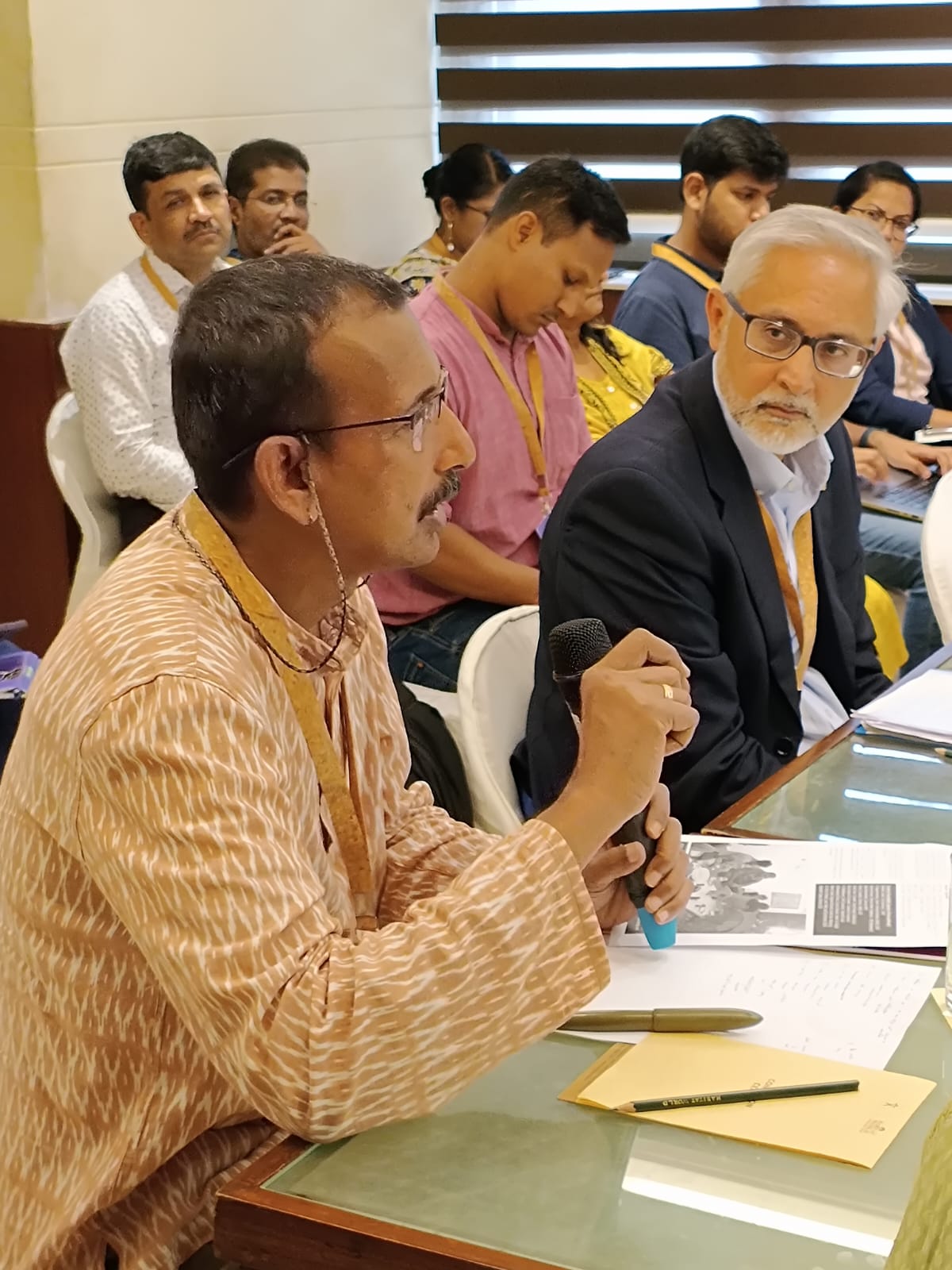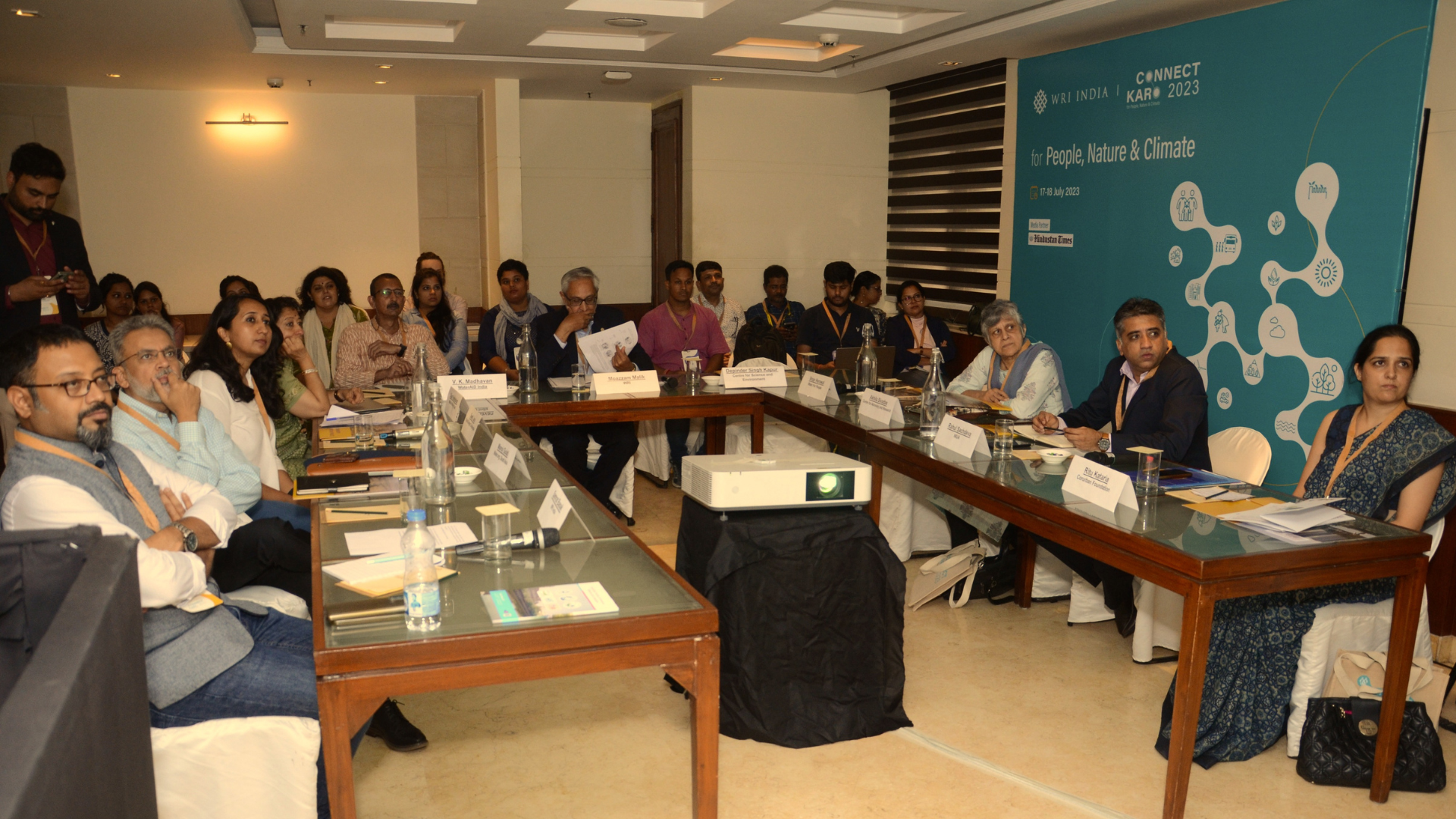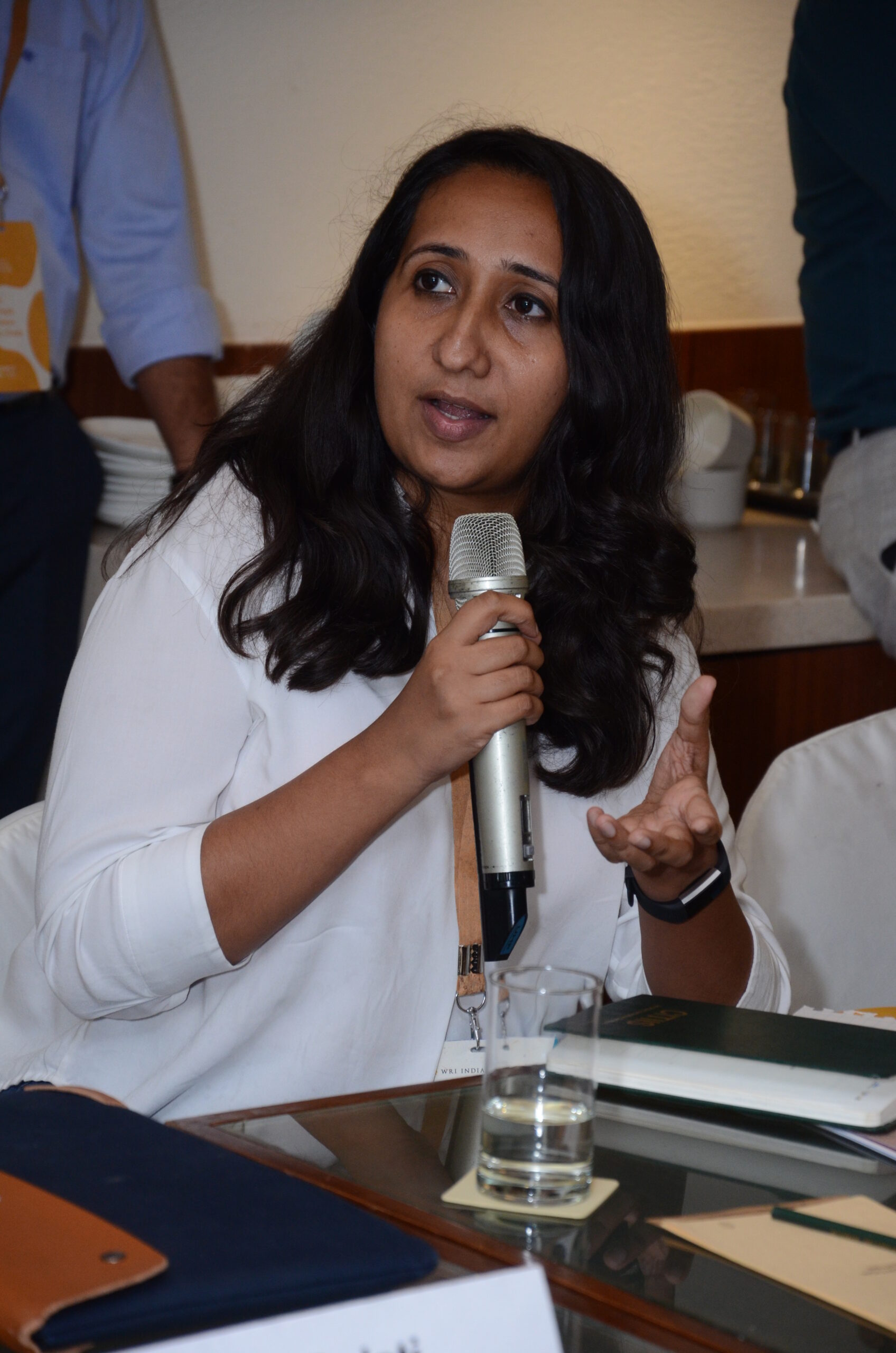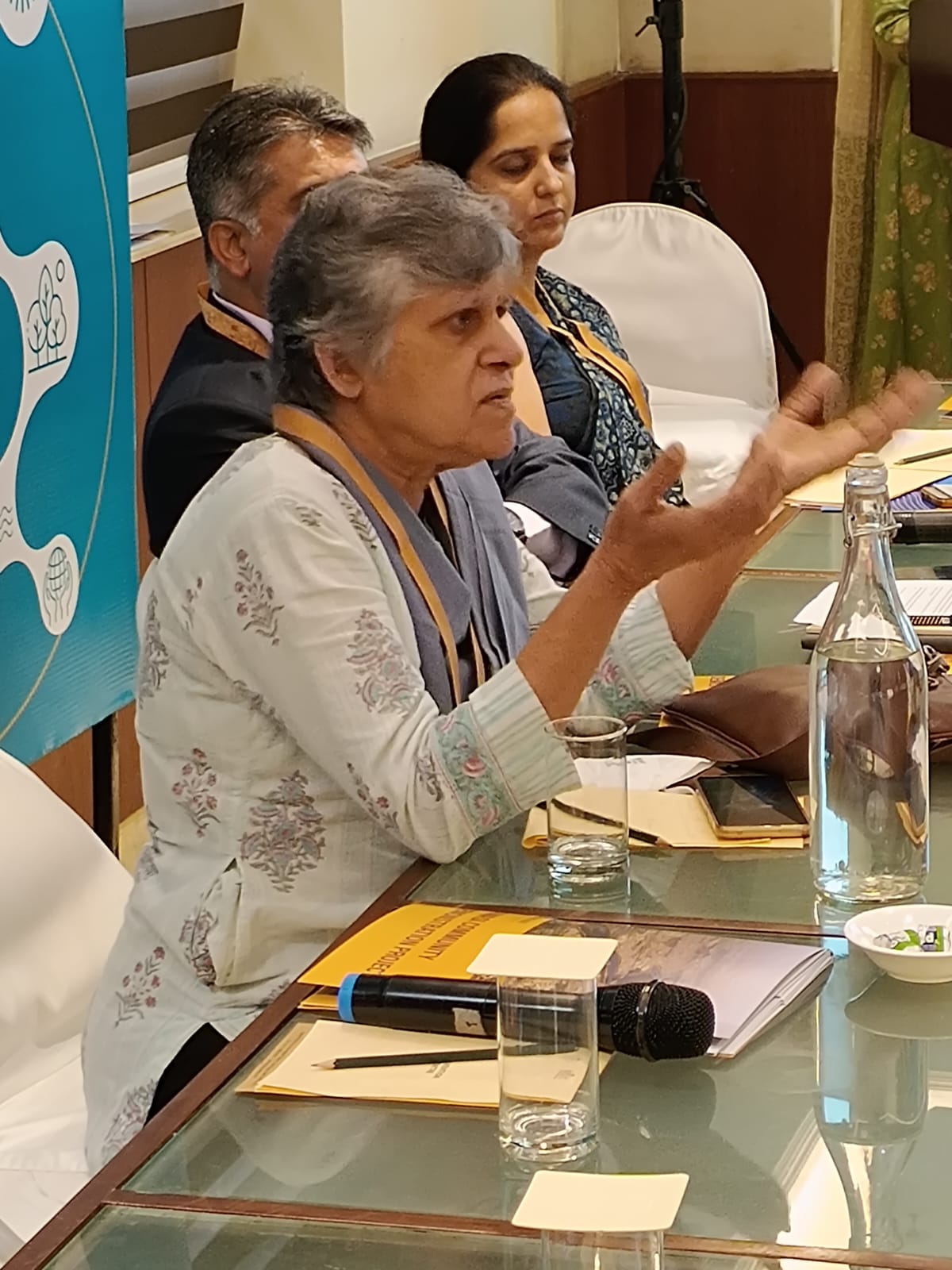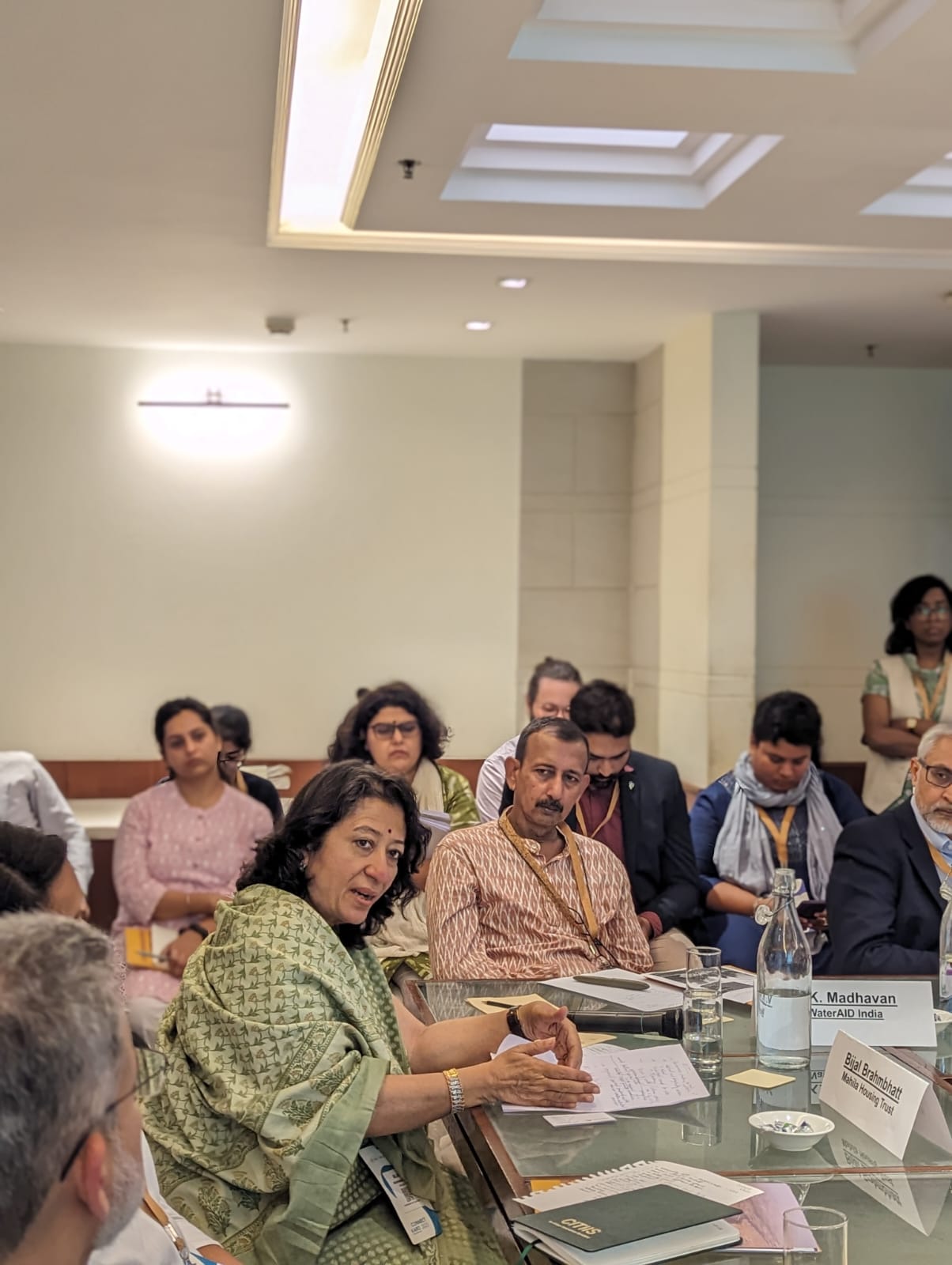Connect Karo 2023
WRI India successfully hosted the RECOURSE: Resilient Community Opportunities & Urban Services session that witnessed an insightful roundtable where experts exchanged ideas, case studies and first-hand experiences on community resilience building.
Some key takeaways from the discussion:
> Communities are at the receiving end of climate change impact, but they rarely have a voice or get a chance to make critical decisions. There is a growing need for a paradigm shift where local communities lead decisions over how, when and where to adapt.
> There are two gaps when we talk urban – with respect to change we still only refer to large metropolitan cities and we tend to ignore small towns. Efforts made are disproportionate. There is an opportunity here to act on preventing the problem before it arises, in small towns.
> One of the biggest issues is behavioural change. For change to occur, we need to understand the gaps in our system.
> We need to ask for climate insurance for securing our homes and livelihood.
> We emphasize on quantity over quality. We always focus on numbers – how many toilets were built, points of water supply installed, etc. But we should also think of capturing the processes that go behind reaching the output.
> The solution does not lie in building something at the community level or the system level and then arranging a marriage. There is a need to build leadership that is agile and can understand the opportunity well enough.
WRI India is currently involved in building such a model of community resilience, along with consortium partners, for two vulnerable communities in Delhi, and helping them improve #watersecurity through AIWASI.



